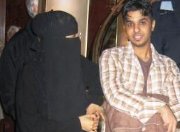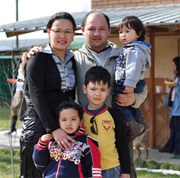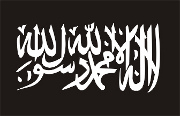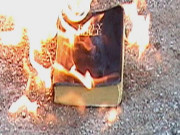She gives vital recommendations of how Christians and missionary groups can protect themselves and their staff during this time of unparalleled violenceBy Dan WoodingFounder of ASSIST Ministries
PHOENIX, AZ (ANS) -- In an unprecedented and well-organized attack on over 21 U.S. and German embassies this week, the loss of security and sovereignty represented by each embassy is a “world changing” event for Christians, churches, and missionaries around the globe.
 |
Protesters try to break into the US embassy in Sana’a, Yemen, during a protest yesterday (Photo: AFP)
|
This is the view of Mary Marr, Founder and President of The Christian Emergency Network (CEN), who spoke to the ASSIST News Service (
www.assistnews.net) today (Saturday, September 15, 2012) in an exclusive interview.
She began by saying, “These events beg the questions: If the U.S. cannot or will not defend embassies, what will be defended? If the embassy staff, in Libya or elsewhere, is not defended, what will the aid be to any U.S. citizen traveling in a country who may be at risk? Apart from domestic security in the U.S. what does this mean for Christians, churches and missionaries around the globe?
“Missionaries have long lived with an eternal perspective in that each day their lives may be at risk in many countries where they minister. And, those with U.S. citizenship may have long relied upon the belief the U.S. embassies were not only symbolic, but bastions of security, while traveling or residing in another country.
“However, the events of this week are putting that assumption into question. As responsible caring believers, we must not refuse to examine the consequences for Christians (or any U.S. citizen) living or traveling abroad after this week nor to ignore the consequences domestically.
“It is not a matter of simply making ‘a statement’ with our wallets by curtailing tourist travel as some in the media have called for, or demonstrating anger over a foreign sovereign country not securing our embassies called for under international law. It is a matter of realistically assessing the security of our citizens. And, that includes Christians and missionaries residing around the world.”
 |
Mary Marr
|
Marr went on to say, “This cauldron has been simmering for a very long time. Anyone can readily see this level and highly organized outrage was not simply because of one movie as anything may have triggered the outrage in countries angered with the U.S. for one reason or another. These are highly orchestrated protests with historic and current security consequences for all Christians and missionaries, as well as citizens of the U.S. and other countries who consistently defend their citizens when traveling around the world.
“Historically in times of battle when a fort is taken a victorious flag rises as a symbol of defeat, such as we have seen with the U.S. flag in many countries being replaced by a black Islamist flag in recent days.
“When Francis Scott Key was awaiting word on a British or U.S. victory, he began writing what was to become the American National Anthem with the words, ‘And the rockets' red glare, the bombs bursting in air, Gave proof through the night that our flag was still there….’ This was a symbol of victory and an inspiration for a fledgling new nation standing for the freedom, including a nation built upon religious freedom for all faiths.”
Marr, who founded CEN after Sept 11, 2001 to “help the Body of Christ respond more biblically, intentionally and collaboratively to national emergencies,” went on to tell ANS, “During WWII, when fellow soldiers raised the flag over Iwo Jima the infamous photograph was formed into a memorial, which still stands as a remainder and symbolic declaration of strategic victory inspiring the war was at an end. Just as words have meaning, flags have meaning.
“And, just as the Christian flag has meaning for followers of Christ, so the Islamic flag has meaning for many Muslims around the globe. Erecting the Islamist flag over our embassies has meaning in that it makes the statement the Islamist flag has replaced the sovereignty of the country and it is no longer recognized as a place of security and defense for that country or the citizens who reside in those countries.
“The boldness of taking down one flag of an embassy of a sovereign nation and replacing it with a religious flag should not be minimized as bold consequences may follow as result. Just this week the U.S. Department of Homeland Security issued a rare security bulletin putting faith-based organizations on alert as the situation escalates in the Middle East and beyond.
“Rather than retreating in denial or avoidance, as those without the 'Hope of Christ' as we have been prone to do, the situation before us means a vital question must be decidedly answered.”
When asked what Christians, churches, Christian ministries and missionary organizations specifically should do right away regarding to their own global security from a Biblical perspective, she replied, “First, they should not minimize the consequences of the security risks of their Christians missionaries in countries around the globe. Prayerful and intentional decisions need to be made by the missionary organizations, apart from their traditional decision-making processes, since these are unprecedented times.”
Marr said that the U.S. government "may be distracted, unable or unwilling to be efficient in aiding missionaries, so it is incumbent upon the missionary organization itself to ask tough questions.”
She then listed them as:
1. Is the current environment in a given country secure for Christians and missionaries? What does security mean to your organization?
2. Are the missionaries “in country relationships” reliable, silent, less valuable, or becoming less constrained related to matters of security?
3. Do we stay the course as a missionary organization regardless of the security risk and cost or pull our missionaries out for another day when they may minister more effectively? Two Scriptures, which may apply in making this decision, are: “Beat your plowshares into swords and your pruning hooks into spears. Let the weakling say, ‘I am strong!’” (Joel 3:10 NIV) or, “He will judge between the nations and will settle disputes for many peoples. They will beat their swords into plowshares and their spears into pruning hooks. Nation will not take up sword against nation, nor will they train for war anymore.” (Isaiah 2:4 NIV).
Marr continued by saying, “When Rome was encountering the plague, many Christians stayed to assist those in need, for the cause of the Gospel. There is a place biblically for the first responder, as we know full well, and the soldier who sacrifices his life for the lives of many. Yet, the ultimate sacrifice should not be given without cause. Self-sacrifice is not always called for as there is also the biblical perspective to survive another day and fulfill the mission by going on. This perspective is in fact the first recommendation! However, God is the only one who is able to guide us in which biblical principle applies in every situation.
“However, regardless of which Scripture and biblical perspective applies to any situation the primary responsibility for securing Christians within the church facility while in worship is the church itself for example. And, the primary responsibility for securing missionaries is the mission organization itself, not the missionary in the field. Regardless of risk and cost, whether it is Church leadership, ministry or missionary organizations Christian leaders need to make prayerful, intentional, and deliberate decisions based upon the reality of the situation, as no decision is a decision, and the most dangerous decision of all!
“We cannot stand idly by and wait for government to address the security of our churches, ministries or families whether domestically or abroad. The responsibility primarily resided with us. What should churches, missionaries, and Christians do right now whether they are clearly in an 'at risk' situation abroad are this week or domestically in the future?"
Marr added, “To assist you, your family, church and local Christian community to assess your level of biblical readiness, develop emergency operations plans, build spiritual, emotional, mental and physical resiliency to biblically respond in crisis of all kinds, CEN (
www.christianemergencynetwork.org) provides three helpful training programs -
ReadyChristian,
ReadyChurch, and
ReadyCity.”
She then suggested the following immediate steps for churches, ministry and missionary organizations:
* Train staff to be aware of unusual activities such as loitering or taking photos of facilities
* Sign up for CEN Alerts ongoing for timely updates on unfolding crisis
* Develop emergency operation plans
* Establish safe rooms, shelter in place actions, and communication plans
* Post sentries during events and worship services who rotate and rove
* Establish relationships with local law enforcement and report suspicious any activity immediately
* Limit vehicle access to the perimeters of facilities
* Lock windows and doors, use fencing and gate locks
* Review your faith-organization’s website for any information that may be sensitive
* Identify entry exits clearly to emergency evacuations and conduct an evacuation drill
Mary Marr’s expertise is in providing a unique Christian worldview to emergency preparedness and response, working with Department of Homeland Security and FEMA faith-based initiatives, developing the Biblical Readiness Standard, and offering a biblical perspective on any crisis situation provides a unique and valued service to the Christian community worldwide. In addition to being a seasoned radio broadcaster, educator, speaker, and author of Lighting the Way, Mary is also the author of CEN's three core ready training programs: ReadyChristian, ReadyChurch andReadyCity.
She concluded by saying, “Every Christian should be ready to respond biblically to emergencies large or small. Christian Emergency Network unites Christian volunteers, community leaders and emergency professionals in equipping the Church to be aware and ready to respond in emergencies large and small. To learn more about how you or your Christian organization can be prepared to respond to emergencies go to
www.christianemergencynetwork.org.”















